Photos capture the beauty of jellyfish send off our coastline - and this is what to do if you're caught by their sting
and live on Freeview channel 276
The images were taken by Sam Jeffries Petrie as she swam off Seaburn beach one morning earlier this week.
Sharing them with the Sunderland Echo via Instagram, she said: “Not quite dolphins but get the same reaction, lots of high pitched scream only of fear not excitement.”
Advertisement
Hide AdAdvertisement
Hide AdJellyfish have been around for millions of years, before dinosaurs, and can be clear or coloured vibrant pink, yellow, blue and purple and be bioluminescent, which means they can produce their own light.
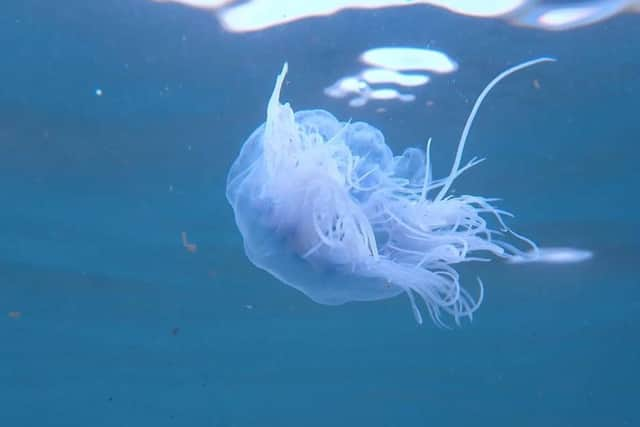

While their beauty may be admired, as Sam mentions, the threat of their sting can cause fear, while those caught by their tentacles can smart – a tactic used as they stun or paralyse their prey.
Symptoms of sea creature stings include an intense pain and an itchy rash, while some can cause raised circular areas, or welts, on the skin.
The NHS says people can avoid being stung by looking out for beach warning signs, consider wearing a wet suit while in the sea, especially during spring and summer, wear waterproof shoes or sandals when walking in shallow water or rock ares and scuff or stamp your feet when in shallow water to make sea creatures aware you’re approaching.
Advertisement
Hide AdAdvertisement
Hide AdIt also says people should not touch or handle sea creatures which sting.
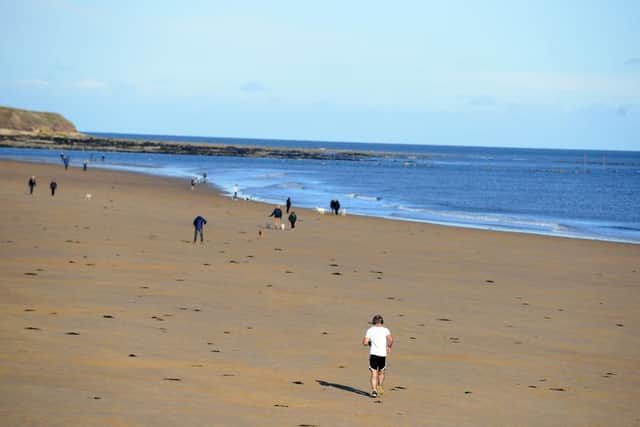

Here’s what to do if you get stung while out along our coast according to the NHS.
Do
*Rinse the affected area with seawater, but not fresh water
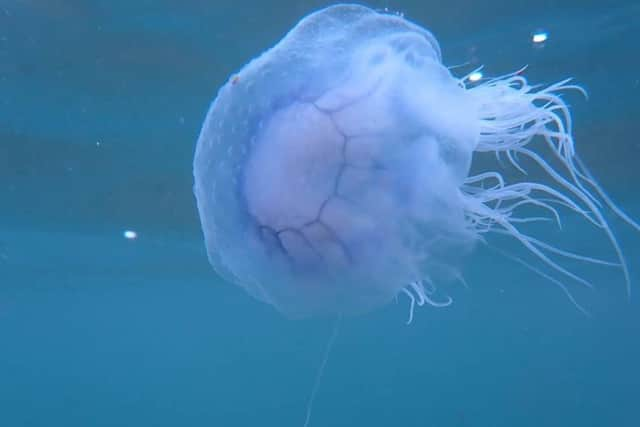

*Remove any spines from the skin using tweezers or use the edge of a bank card
*Soak the area in very warm water – as hot as can be tolerated – for at least 30 minutes – use hot flannels or towels if you cannot soak it
*Take painkillers like paracetamol or ibuprofen
It says people should not
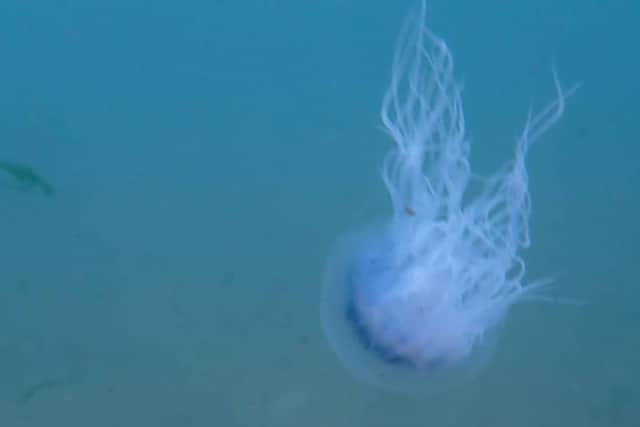

*Use vinegar
*Do not pee on the sting
*Do not apply ice or a cold pack
*Do not touch any spines with your bare hands
*Do not cover or close the wound
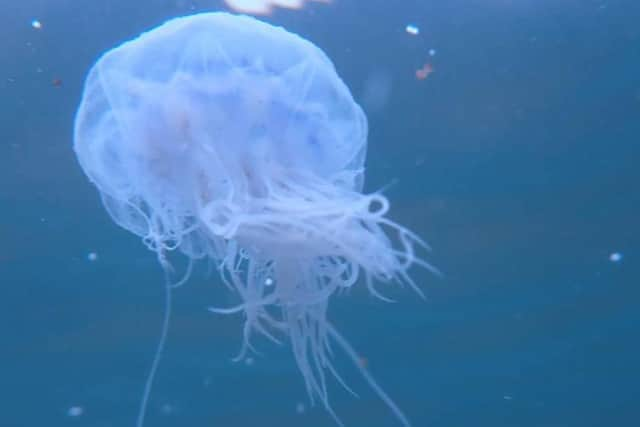

People should go to a minor injuries if they have:
*Severe pain that is not going away
*Have been stung on their face or genitals
*Been stung by a stingray
Advertisement
Hide AdAdvertisement
Hide AdIt advises people should head for A&E or call 999 if people:
*Have difficulty breathing
*Are experiencing chest pain
*Has a fit or seizure
*Have severe swelling around the affected area
*Severe bleeding
*Are vomiting, have lightheadedness or lose consciousness.
